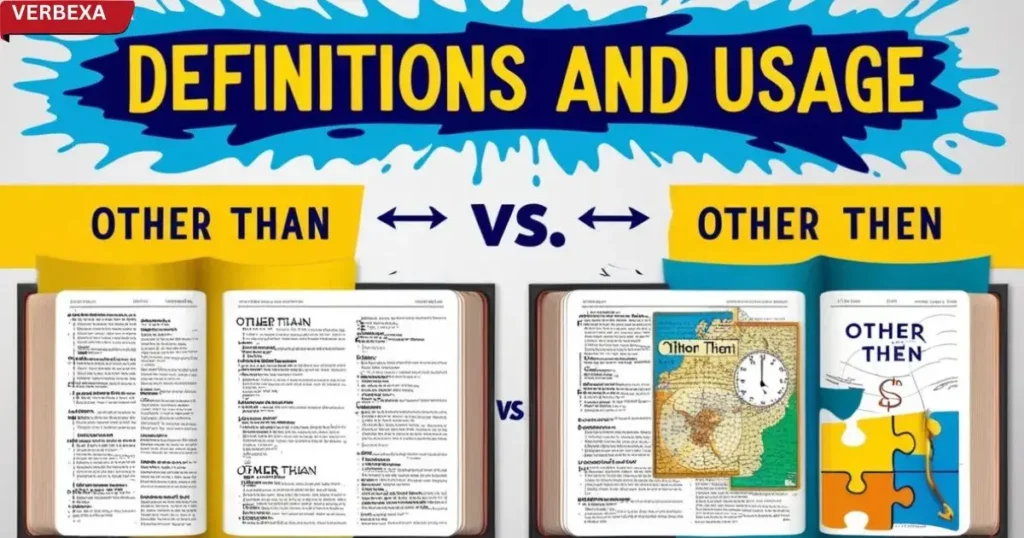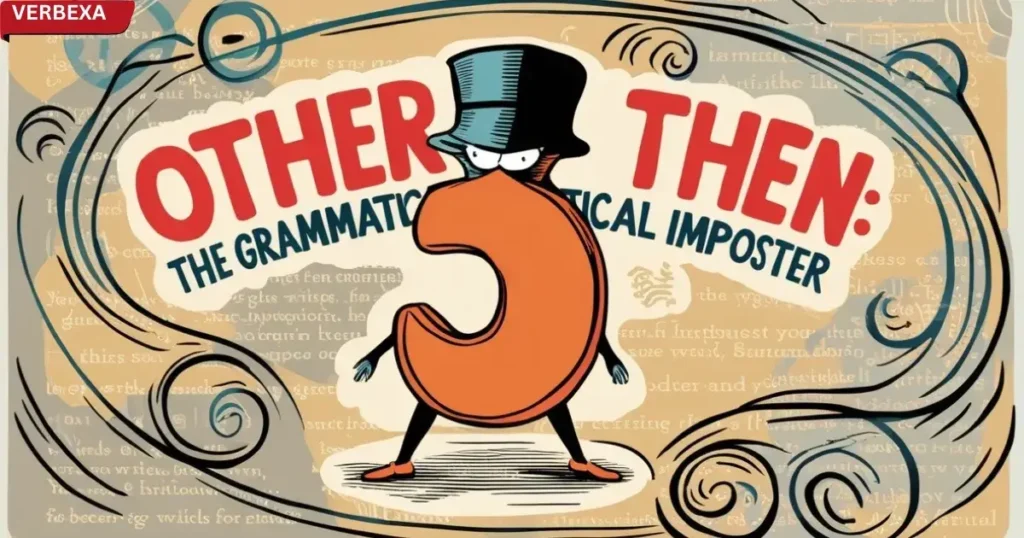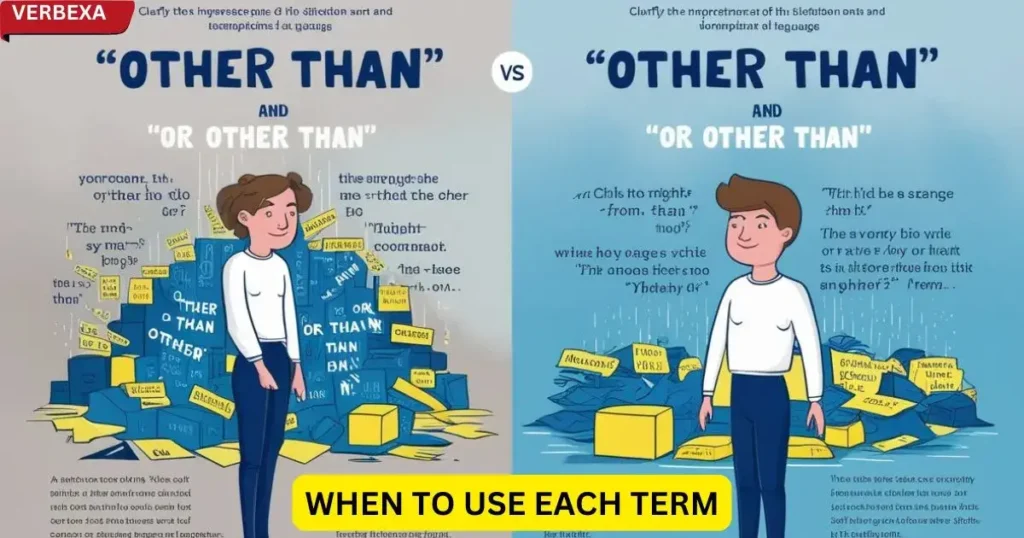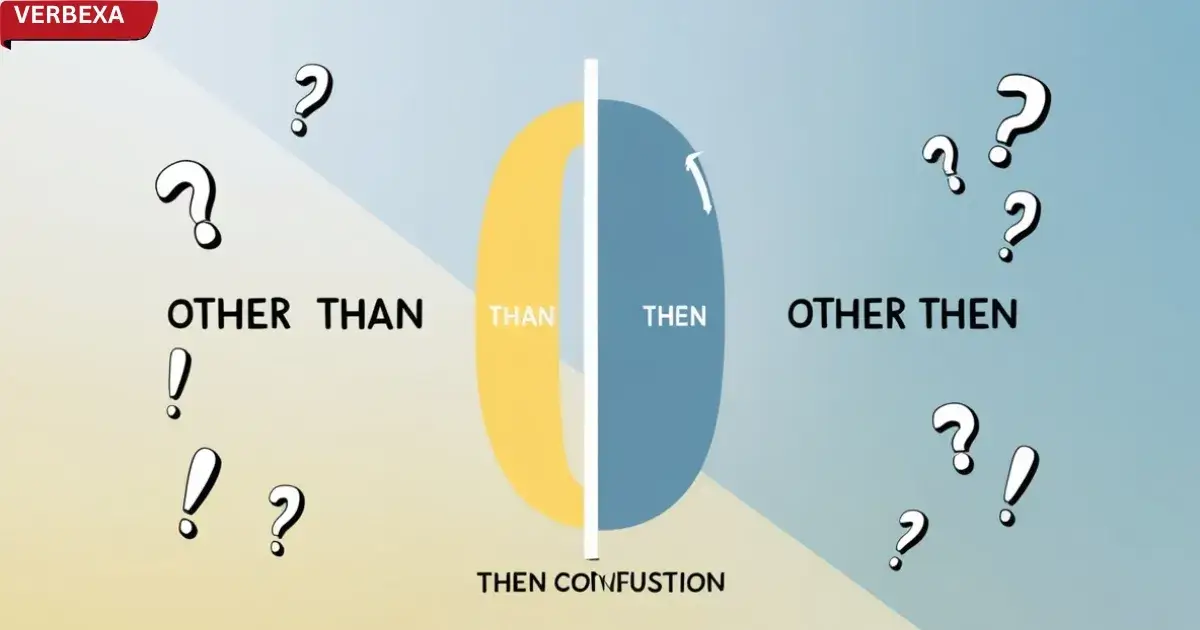Have you ever stumbled upon the phrase “other then” in a text or heard someone use it in conversation? If so, you’re not alone. Many people confuse other than or other then, often using them interchangeably. However, these phrases have distinct meanings and grammatical roles, leading to significant differences in the conveyed message. Consider this scenario: a friend tells you, “I have no plans other than going to the movies,” versus “I have no plans other then going to the movies”.
While the difference may seem subtle, it completely changes the meaning. The first statement clearly indicates a single plan; the second, grammatically incorrect, leaves the meaning ambiguous and possibly nonsensical. This article aims to clear up this common confusion by exploring the differences between other than or other then, providing clear examples, and showing how to use each correctly. Understanding this distinction is crucial for clear and effective communication, whether in writing or speaking. Other than or other then are essential to learn for better communication and comprehension.
Definitions and Usage

Other Than: The Correct Preposition Phrase
Other than is a prepositional phrase. It means “except for,” “besides,” or “apart from.” It signifies exclusion or exception. The word “other” functions as an adjective modifying the noun or pronoun that follows “than“, which acts as a preposition. Therefore, “other than” always functions as a prepositional phrase. Other than or other then should always be used correctly to avoid confusion.
Example:
- Sam knows other than the code, he has little technical expertise.
- Her sister does everything other than clean the house.
- I have nothing to wear other than this old dress. (This excludes other clothing options.)
- Other than the rain, the picnic was perfect. (This notes the rain as an exception to the otherwise perfect picnic.)
- There’s no one here other than you and me. (This excludes all others.)
Synonyms for Other Than
- Except for
- Besides
- Apart from
- Excluding
- Aside from
- Barring
- Excepting
- Save for
- With the exception of
- Excluding
Other Then: The Grammatical Imposter

Other then is typically a typographical error or grammatical mistake. In rare instances, “then” can relate to time or sequence, but it’s not interchangeable with other than.
Synonyms for Other Than
Since “other then” is not grammatically correct, synonyms are provided for the correct phrase, “other than”.
- Except for
- Besides
- Apart from
- Excluding
- Aside from
- Save for
- With the exception of
- But for
- Outside of
- Barring
To remember the correct usage, consider “than” as being connected to a comparison or exclusion, while “then” relates to time. Understanding this core difference is key to mastering other than or other then.
Comparison Table: Other Than vs Other Then
| Aspect | Other Than | Other Then |
|---|---|---|
| Definition | Preposition indicating exclusion | Grammatically incorrect in most contexts |
| Typical Usage | Distinguishing or excluding | Rarely valid |
| Grammatical Role | Preposition phrase | Potential typo |
| Semantic Meaning | Exception or distinction | Typically meaningless |
When to Use Each Term

Correct Usage of Other Than
- Use other than when you want to exclude or distinguish something
- Appropriate in formal and informal writing
- Indicates a clear exception to a general statement
Avoiding Other Then
- Almost never use “other then” in writing
- If you mean to indicate time, use “then” separately
- Always default to other than when showing exclusion
Knowing the difference between other than or other then is important for correct writing.
Everyday Usage Examples
Correct Usage:
- The picnic was enjoyable other than the unexpected rain.
- I like all vegetables other than broccoli.
- The project went smoothly other than a few minor setbacks.
Incorrect Usage:
A common mistake when discussing the difference between other than or other then is assuming they are similar. Here’s an example showing the correct use of other than in different contexts:
- ✅ Jake has no friends other than his sister. (Correct)
- ✅ She enjoyed everything other than the rain during the picnic. (Correct)
- ❌ I’ll do everything other then sleeping. (Incorrect)
- ✅ I’ll do everything other than sleeping. (Correct)
Common Mistakes and Clarifications
Linguistic Traps:
- Typographical errors often lead to using “other then“
- Context is crucial in determining correct usage
- Always proofread to catch these subtle mistakes
FAQs
Which is correct, than or then?
“Than” is used for comparisons; “then” indicates time or sequence. Choose carefully based on the context of your sentence.
What is the rule for than and then?
“Than” follows comparative adjectives/adverbs; “then” shows time order or consequence. Understanding this distinction is key.
Is it rather than or then?
It’s “rather than.” “Rather” means “instead of,” creating a comparative structure requiring “than.”
Do you say better than or better then?
Always “better than.” You’re making a comparison, requiring the comparative word “than,” not “then.”
Conclusion
Understanding the difference between other than and other then is more than a grammatical nicety – it’s about communication clarity. By recognizing other than as the correct preposition for indicating exceptions and avoiding the common typographical error of “other then“, you elevate your writing precision. Consistent, correct use of other then or other than can ensure correct usage of the phrase.
Remember:
- Other than = Exception or distinction
- Other then = Almost always a mistake
Mastering these subtle linguistic nuances transforms good writing into exceptional communication.

This author is a passionate linguist and grammar enthusiast, dedicated to helping individuals master the art of language. With years of experience in teaching and editing, she brings clarity and precision to every sentence. Tina’s mission is to empower writers of all levels to express themselves with confidence and excellence.

